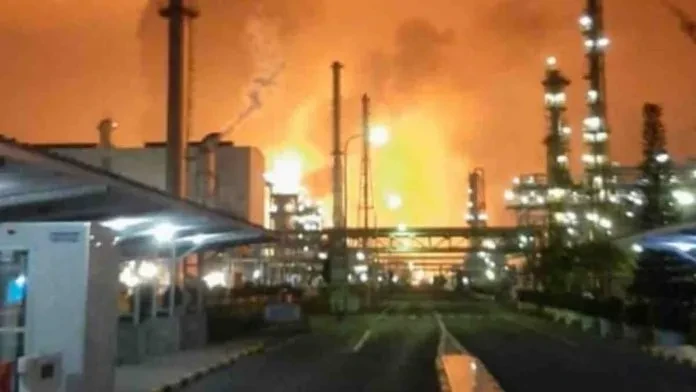jlk– On a bright day, the sun shines brightly over the White House. Inside, US officials are discussing Ukraine and Russia.
No, they’re not playing chess, although it might seem like it. They’re discussing Ukraine’s attack on Russian oil facilities.
Act One: Drone Strikes
Ukraine and Russia have been launching drone strikes at each other amid the military conflict between the two countries.
Imagine, the drones flying around like flies in the summer, except they carry more explosions than mosquito bites.
Act Two: The US Speaks
The US, like a teacher trying to calm down a fight in the schoolyard, urges Ukraine to stop attacking Russian oil energy infrastructure.
Why? Because of concerns that such attacks could skyrocket global oil prices and trigger retaliation.
Act Three: Ukraine Refuses
However, Ukraine, like a disobedient child, refuses to listen, insisting that Russian oil facilities are legitimate targets for Ukrainian forces.
Global Impact
The attacks have helped drive up oil prices, which have increased nearly 4% since March 12 when Ukraine first targeted Russian energy infrastructure.
Rising gasoline prices in the United States will also weaken President Joe Biden’s approval ratings and diminish his chances of re-election in the upcoming November presidential election.
So, what can we learn from all this? As Albert Einstein said, “Energy cannot be created or destroyed, it can only be changed from one form to another.” And in this case, energy transforms into geopolitical conflict and oil price fluctuations.
In an increasingly interconnected world, every action has global consequences. And as we see in this drama, the consequences can be significant.
So, let’s hope for a peaceful and stable resolution in the future. Because ultimately, we all inhabit the same planet, and we all need energy to sustain our lives.











